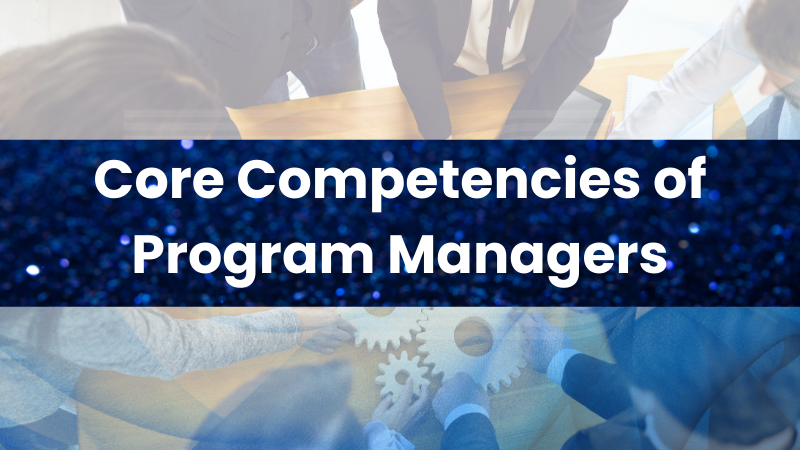
by DharamCW | Jan 22, 2025 | Program Management
Top 10 Core Competencies of Program Managers | Skills for Success | Dharam Singh & vCare Project Management
There are many similarities between a good program manager and a good project manager. However, a program manager must have broader organizational knowledge than a project manager. In addition, programs frequently necessitate strategic visioning and planning skills to align overall program goals and benefits with the organization’s long-term goals.
Here are the top ten core competencies of Program Managers:
1. Leadership and Teamwork
2. Planning and Organizing
3. Communication
4. Ethics and Ethical Values:
5. Internal and External Stakeholder Engagement
6. Political Understanding
7. Knowledge management
8. Financial Management
9. Risk management
10. Project and Process Management
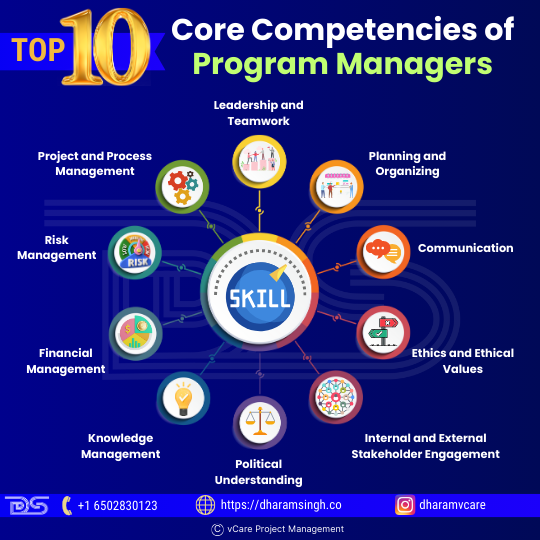
What makes a great program manager? Explore the top 10 core competencies essential for program success with insights from Dharam Singh & vCare Project Management!
🚀 Looking to deepen your knowledge? Check out our upcoming webinars featuring global experts,
1. Innovative Project Management Practices featuring Olajumoke Akinwunmi – https://bit.ly/3ZxZOx4
2. PMO Digital Transformation Leadership: Insights and Success featuring Sherwyn Cambridge – https://bit.ly/4iMvyWE
3. Culture, People, Programs, Risks: Leadership Redefined featuring Lucie Ellis – https://bit.ly/3VXv4mW
4. Resilient Leadership in Cyber-Driven Programs: Strategies from a Transformation Expert featuring Dr. Maria Sette – https://bit.ly/4j9fmPA
– Book an obligation-free consultation session on Project management Career, training, and certifications: http://talktodharam.com
– Discover training offers and certification discounts: https://bit.ly/3jWVepD
– Stay updated with our Q&A series and certification success stories by subscribing to the vCare Project Management YouTube channel at https://bit.ly/2YF0wJl
– Follow my podcasts and interviews with Project Management Experts on YouTube at https://bit.ly/2NDY8wd
#ProgramManagement #ProgramManager #ProjectManager #ProjectManagement #StrategicPlanning #StakeholderEngagement #CommunicationSkills #EthicsInLeadership #RiskManagement #FinancialManagement #Leadership #Teamwork #KnowledgeManagement #OrganizationalGrowth #ProgramLeadership #PgMP #PfMP #PMP #ProcessManagement #BusinessStrategy #ProgramSuccess #PoliticalAwareness #ManagerialSkills #AskDharam #DharamSingh #DharamSinghPgMP #DharamSinghPfMP #DharamSinghPMP #vCareProjectManagement
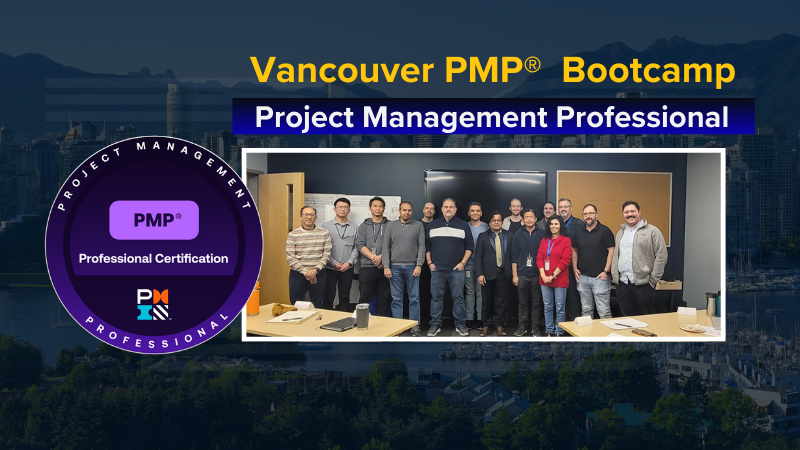
by DharamCW | Dec 16, 2024 | vCare PMI Certification Training Classes
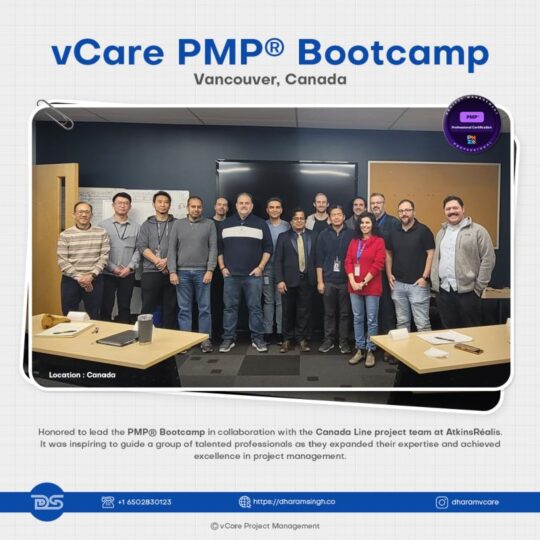
Exciting collaboration! vCare PMP Bootcamp with the Canada Line Project Team at AtkinsRéalis.
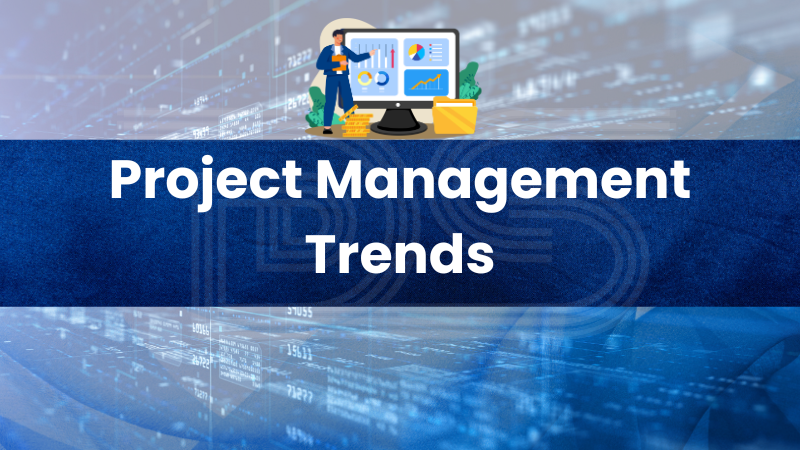
by DharamCW | Nov 2, 2024 | Industry Trends and Insights, Leadership in Project Management, Project Management
Stay Ahead of the Curve in Project Management with Key Trends
Staying ahead of project management trends is essential for success in the ever-evolving business landscape. As a leading mentor and trainer in PMP, PgMP, and PfMP, I would like to highlight some key trends that can help you keep your projects and skills sharp.
🔹 Artificial Intelligence & Automation: These technologies revolutionize workflow management and project efficiencies.
🔹 Hybrid Management Approaches: Combining traditional and agile methods tailors project management to modern needs.
🔹 Emotional Intelligence: Understanding and managing workplace emotions is crucial for project leaders.
🔹 Data Analytics: Leveraging data is becoming indispensable for decision-making and predicting project outcomes.
🔹 Emerging Tools: Stay updated with the latest project management tools designed to handle complex projects effectively.
🔹 Remote Work: As remote setups become the norm, adapt your strategies to maintain productivity and collaboration.
Embracing these trends can help you enhance your project management approach and lead with confidence. If you aim to excel in your certifications or stay updated, mastering these trends is key to success in our field.
🚀 Elevate Your Project Management Career:
– Register for my upcoming PgMP/PfMP Success Story Webinars: https://bit.ly/4aVhrd6 / https://bit.ly/4aycVBj
– Book an obligation-free consultation session on Project management Career, training, and certifications: http://talktodharam.com
– Discover training offers and certification discounts: https://bit.ly/3jWVepD
– Stay updated with our Q&A series and certification success stories by subscribing to the vCare Project Management YouTube channel at https://bit.ly/2YF0wJl
– Follow my podcasts and interviews with Project Management Experts on YouTube at https://bit.ly/2NDY8wd
#ProjectManagementTrends #ProjectManagement #ProjectManager #AI #EQ #Automation #HybridApproaches #DataAnalytics #RemoteWorking #AskDharam #DharamSingh
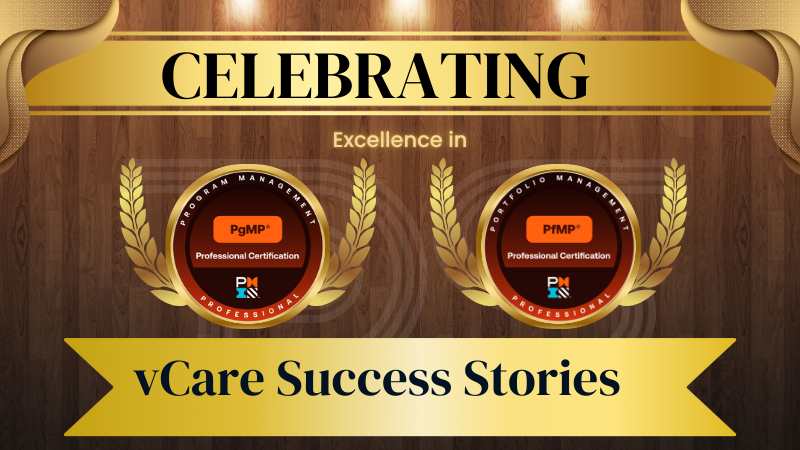
by DharamCW | Oct 18, 2024 | Uncategorized
🎉 Celebrating Excellence in Program & Portfolio Management! 🎉
It’s time to celebrate the incredible achievements of a dedicated group of professionals. Congratulations to each of you who obtained your PgMP® and PfMP® certifications with the guidance and support of vCare Project Management from July to September 2024! 🚀
Many professionals will now find inspiration in your success, highlighting the effectiveness of vCare Project Management’s training and mentoring programs.
Thank you for embarking on this journey with us.
vCare’s Global Reach:
🎓 Supported 515 PgMP®s across 55 countries
🎓 Supported 145 PfMP®s across 30 countries
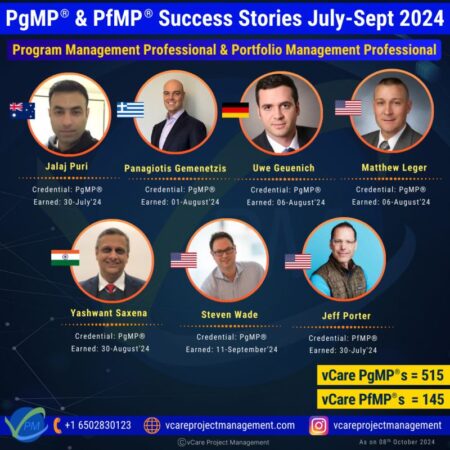
Join us in celebrating the success of PgMP & PfMP achievers with vCare Project Management. Start your journey today!
🌟 To Aspiring Certification Candidates Worldwide:
If you’re a Project, Program, or Portfolio Management Professional looking to boost your career, let this success story inspire you. Although the journey towards certification can be challenging, it is worth embarking on with the right guidance and support. At vCare Project Management, we are dedicated to being a part of your success story by providing you with the necessary expertise and support to help you achieve your goals.
🔍 Looking Ahead:
Accompany more professionals on their learning journey and support their growth and achievements in the upcoming years. Here’s to a year of success stories!
🚀 Elevate Your Project Management Career:
– Register for my upcoming PMI Certification Success Story Webinars:
1. Proven Portfolio Management Strategies featuring Scott McLeod – https://bit.ly/3Mx38kN
2. Dual PfMP & PgMP Success: Strategic Insights with Peter Kazimir – https://bit.ly/3ztTywc
3. From PMP to PgMP: Project to Program Management Transition featuring Moayad Alkhatib – https://bit.ly/4gLja8o
– Book an obligation-free consultation session on Project management Career, training, and certifications: http://talktodharam.com
– Discover training offers and certification discounts: https://bit.ly/3jWVepD
– Stay updated with our Q&A series and certification success stories by subscribing to the vCare Project Management YouTube channel at https://bit.ly/2YF0wJl
– Follow my podcasts and interviews with Project Management Experts on YouTube at https://bit.ly/2NDY8wd
#PgMP #PfMP #vCareProjectManagement #PfMPExamPrep2024 #PgMPExamPrep2024 #vCareSuccess #CertificationJourney #PMI #PfMPSuccess #PgMPSuccess #PgMPCourse #PgMPTraining #PgMPPreparation #PfMPCertification #PfMPCourse #PgMPCertification #PfMPExam #PfMPTraining #ProjectManagement #PortfolioManagement #ProgramManager #ProjectManager #ProgramManagement #PMICertification #PortfolioManager #ProjectLeaders #CareerGrowth #GlobalProfessionals #SuccessStory #GlobalPMCommunity #ProjectLeadership #PMITraining #InspiringSuccess #AskDharam #DharamSingh #DharamSinghPgMP #DharamSinghPfMP
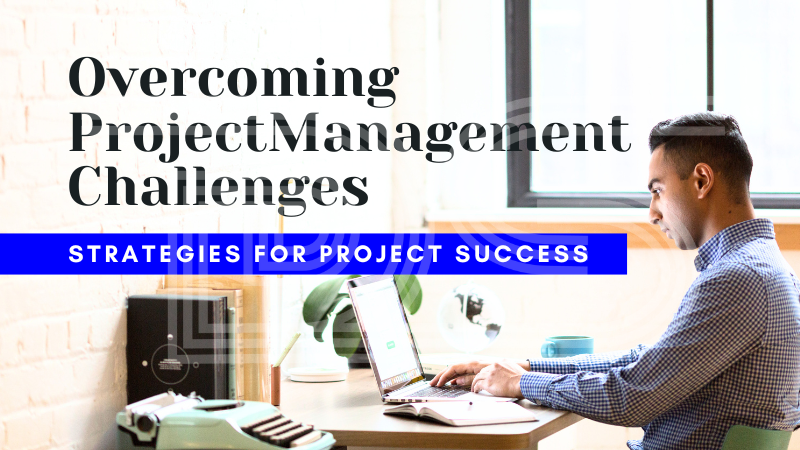
by DharamCW | Sep 30, 2024 | Industry Trends and Insights, Project Management
Overcoming Key Project Management Hurdles
Project management is often a complex and challenging process, requiring managers to navigate a maze of obstacles to achieve success. Here are the core challenges that today’s project managers must adeptly manage:
+ Unclear Goals: Setting clear objectives is crucial but often overlooked, leading to project misalignment.
+ Scope Creep: Projects can expand beyond original plans without rigorous scope control, affecting timelines and budgets.
+ Skill Gaps: Ensuring your team has the right skills is vital for project success but can be a significant hurdle.
+ Accountability Issues: A lack of clear responsibilities can lead to blame-shifting and inefficiencies.
+ Risk Management: Identifying and mitigating risks proactively is often underprioritized until issues arise.
+ Ambiguous Contingency Plans: Effective contingency planning is critical for navigating unexpected changes and risks.
+ Communication Breakdowns: Effective communication is the backbone of project success, yet it’s one of the most common failings.
+ Stakeholder Engagement: Engaging stakeholders appropriately can make or break project outcomes.
+ Digital Transformation: Integrating new technologies poses challenges but is essential for modern project environments.
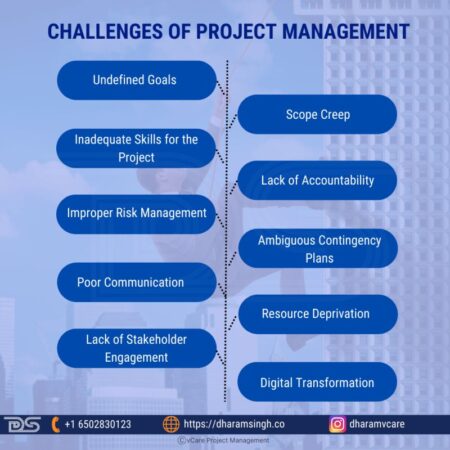
Master the challenges of project management with expert strategies for success.
🚀 Embrace the chance to Advance Your Project Management Career:
Register for my upcoming PgMP/PfMP Success Story Webinar: https://bit.ly/3TSx8fj
Book an obligation-free consultation session on Project management Career, training, and certifications: http://talktodharam.com
Discover training offers and certification discounts: https://bit.ly/3jWVepD
Stay updated with our Q&A series and certification success stories by subscribing to the vCare Project Management YouTube channel: https://bit.ly/2YF0wJl
Follow my podcasts and interviews with Project Management Experts on YouTube: https://bit.ly/2NDY8wd
#ProjectManagement #ProjectSuccess #PgMP #PfMP #ProjectManager #PMChallenges #RiskManagement #ScopeCreep #Leadership #DigitalTransformation #StakeholderEngagement #PMP #PMTraining










I was truly honored to lead the PMP Bootcamp in collaboration with the Canada Line project team at AtkinsRéalis. It was inspiring to mentor such a talented group of professionals as they deepened their expertise and pursued excellence in project management. Their commitment and passion reaffirm the transformative power of knowledge and mentorship in shaping future leaders.